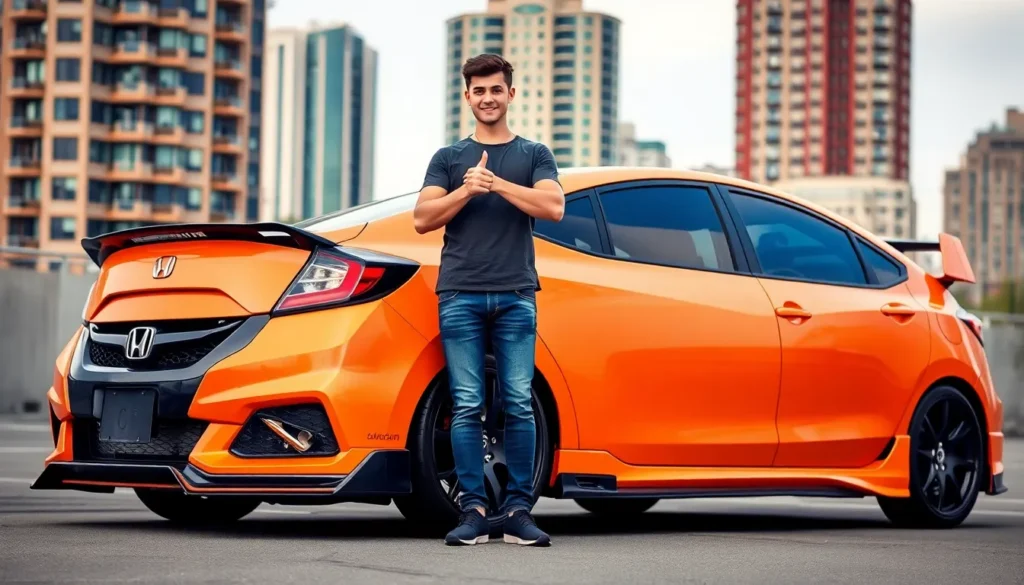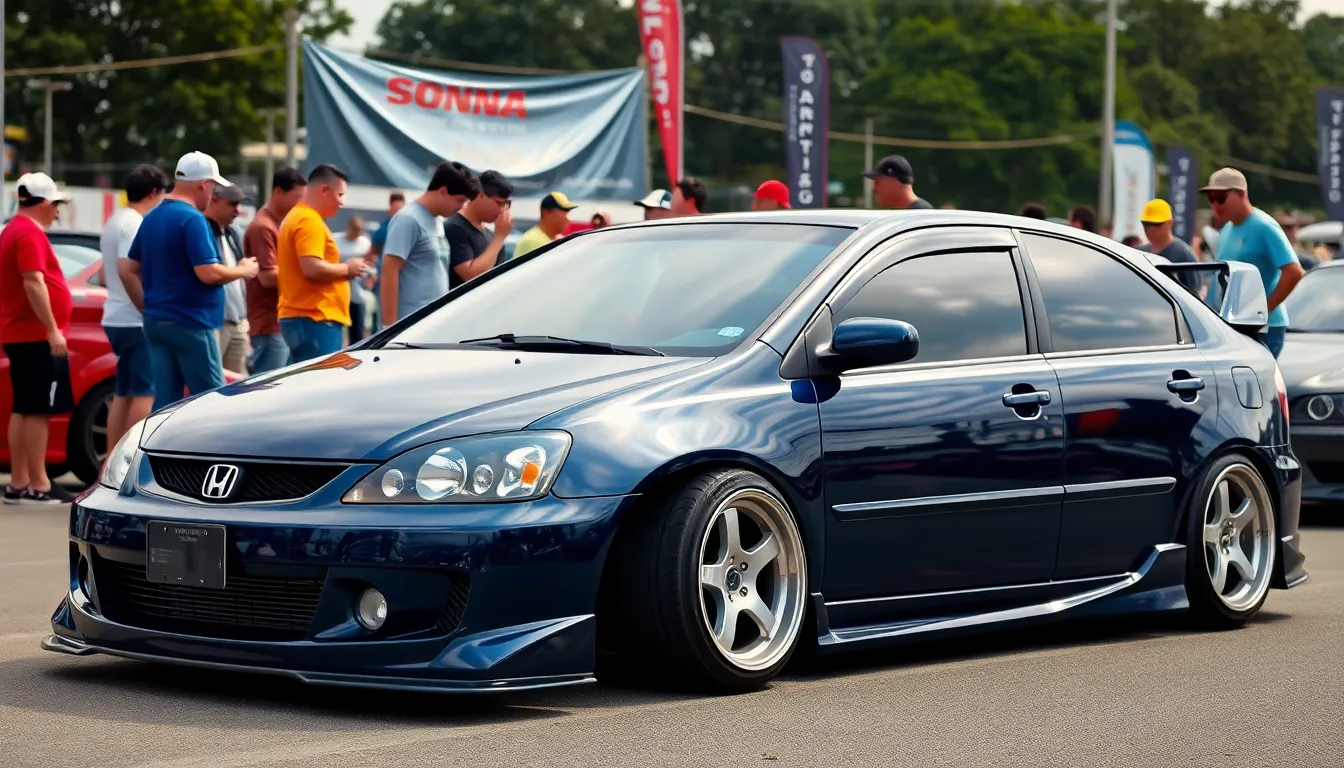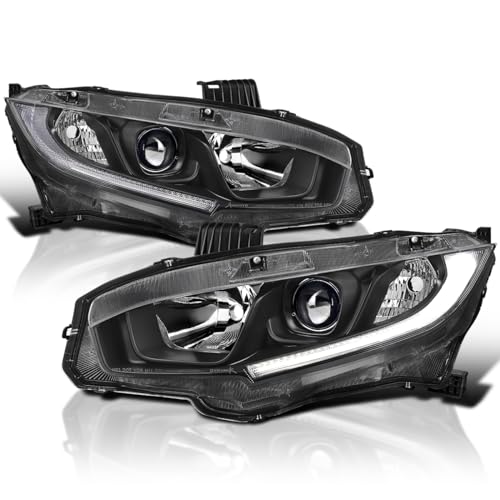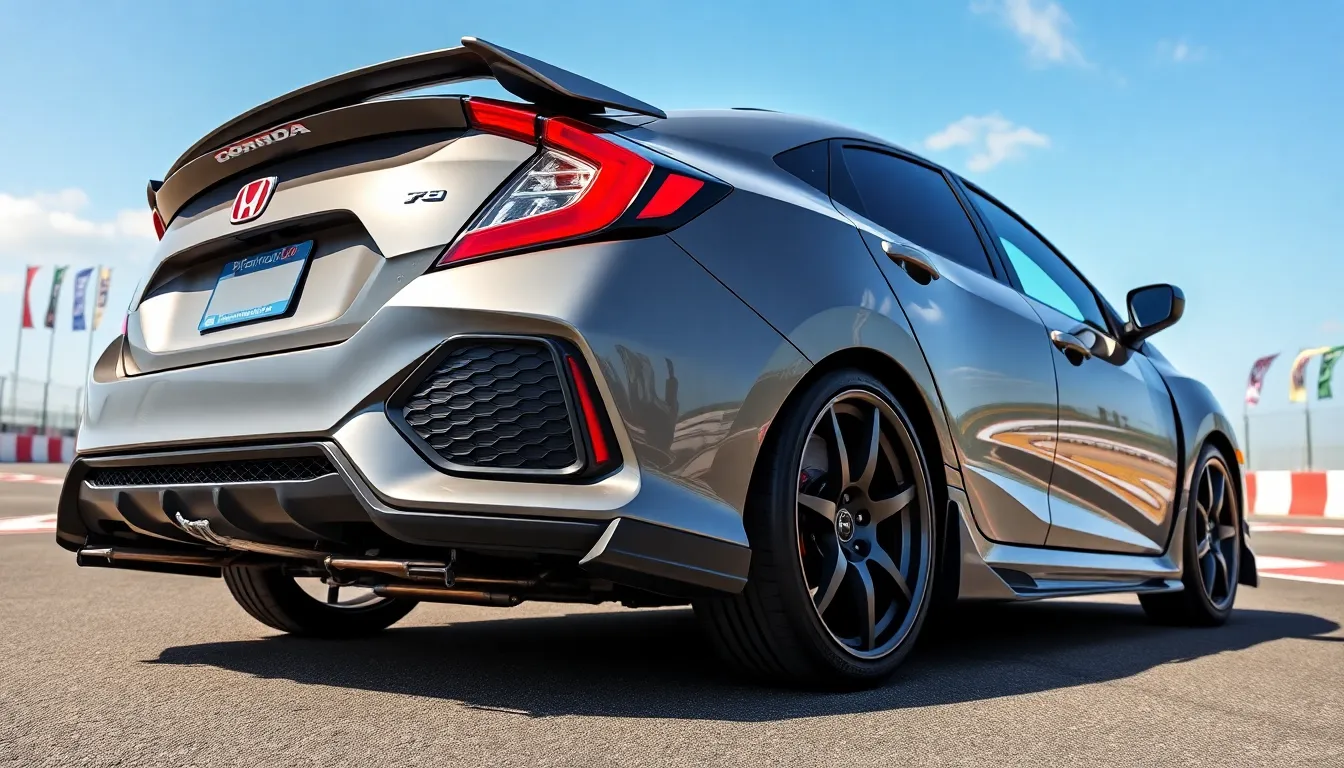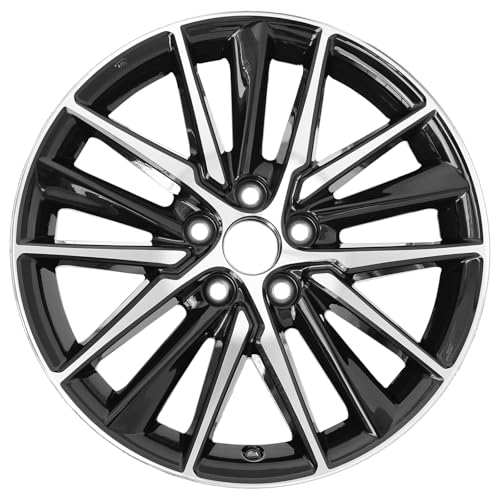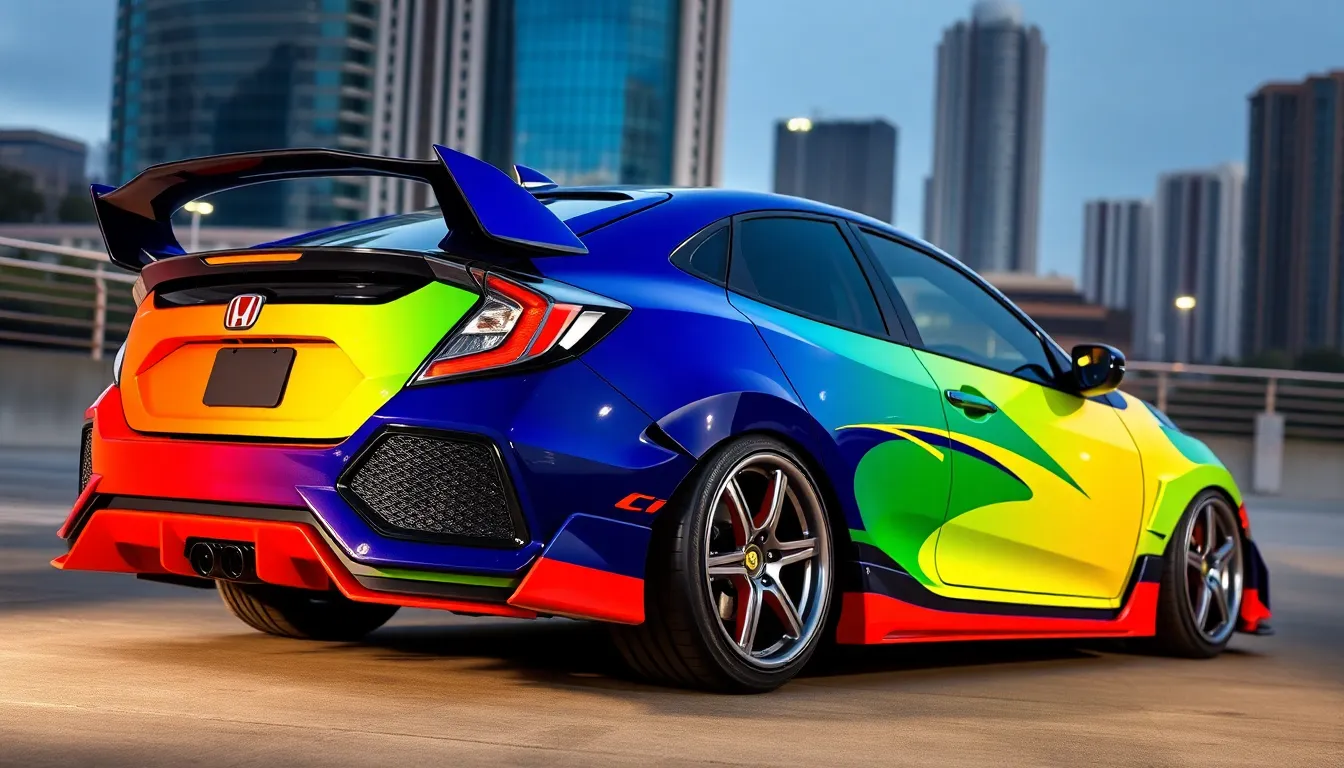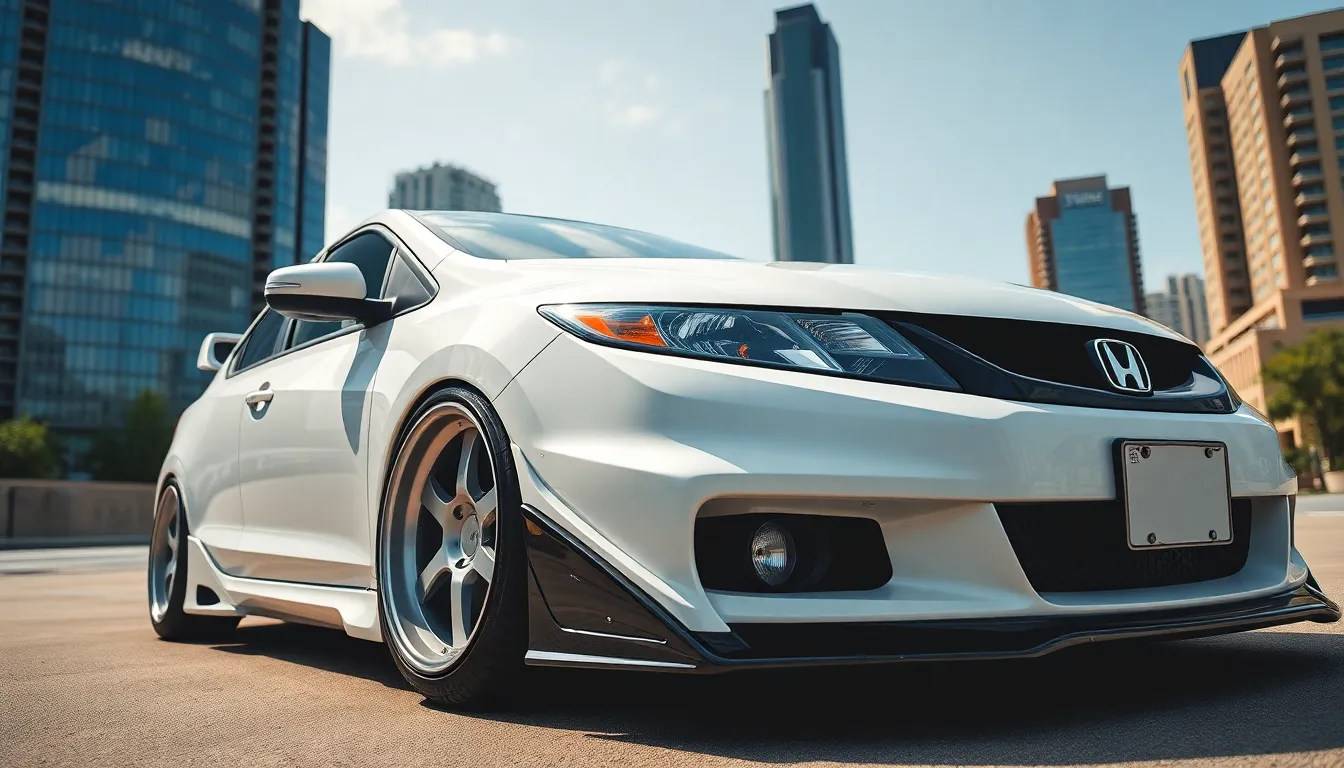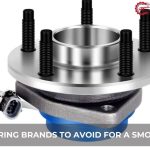The Honda Civic has earned its reputation as one of the most customizable and modification-friendly vehicles on the road. We’ve watched countless enthusiasts transform these reliable compact cars into stunning performance machines and eye-catching street builds that turn heads wherever they go.
From subtle aesthetic upgrades to full-blown engine swaps that’ll leave supercars in the dust, the Civic’s versatility makes it the perfect canvas for automotive creativity. Whether you’re dreaming of a track-ready beast or a show-stopping daily driver, we’ll explore the endless possibilities that make this platform so beloved in the tuning community.
Ready to unlock your Civic’s true potential? We’re diving deep into the most popular modifications, essential upgrades, and proven techniques that’ll help you build the Honda of your dreams while keeping your budget in check.
What Makes the Honda Civic Perfect for Modification
Honda Civic modification thrives because of the platform’s inherent engineering advantages and widespread aftermarket support. The Civic’s lightweight construction creates an ideal foundation for performance enhancements, with base models weighing between 2,771 and 3,064 pounds depending on the generation.
Abundant Aftermarket Support drives the Civic’s modification popularity across multiple generations. Companies like Skunk2, Injen, and K-Tuned manufacture thousands of performance parts specifically for Civic platforms. This extensive catalog includes everything from cold air intakes to complete turbo kits.
Engine Bay Accessibility simplifies installation processes for both novice and experienced mechanics. The transverse-mounted engine layout provides clear access to major components, while the spacious engine bay accommodates larger aftermarket parts without important modifications.
Cost-Effective Performance Gains make Civic modification accessible to enthusiasts with varying budgets. Basic bolt-on modifications like exhaust systems and intake upgrades typically cost between $200 and $800, delivering noticeable performance improvements without very costly.
| Modification Category | Entry Cost Range | Performance Gain |
|---|---|---|
| Intake Systems | $150-400 | 5-15 HP |
| Exhaust Systems | $300-1,200 | 8-25 HP |
| Suspension Upgrades | $400-2,000 | Improved Handling |
| Turbo Kits | $2,500-8,000 | 50-200+ HP |
Platform Versatility accommodates different modification styles across generations. Eighth-generation Civics excel with naturally aspirated builds, while tenth-generation models respond exceptionally well to forced induction modifications.
Community Knowledge Base provides extensive resources for Honda Civic modified projects. Forums like Honda-Tech and CivicX contain decades of collective experience, troubleshooting guides, and detailed build documentation from thousands of enthusiasts worldwide.
Reliable Base Engineering ensures modified Civics maintain daily drivability when properly executed. The robust K-series and L15 engines handle moderate power increases without compromising long-term reliability, making them perfect candidates for street-oriented builds.
Popular Honda Civic Generations for Tuning
Certain Honda Civic generations have earned legendary status among modification enthusiasts due to their exceptional tuning potential and aftermarket support. These exact platforms offer unique advantages that make them stand out in the modified Honda Civic community.
Sixth Generation (EK) – The Tuner’s Dream
The EK generation Civic (1996-2000) represents the pinnacle of modification-friendly design among Honda Civic platforms. This generation features the most extensive aftermarket support in the Civic lineup, with over 15,000 available performance parts from major manufacturers.
Weight advantages make the EK particularly attractive for performance builds, tipping the scales at just 2,340 pounds in hatchback form. Engine bay accessibility reaches its peak in this generation, allowing mechanics to perform complex swaps like the legendary K20A or B18C installations in under 12 hours.
Popular EK modifications include:
- B-series engine swaps – B16A, B18C, and B20B conversions providing 160-195 horsepower
- K-series conversions – K20A2 and K24A swaps delivering 200-220 horsepower naturally aspirated
- Forced induction setups – Turbo kits producing 250-400 horsepower on stock internals
- Weight reduction packages – Carbon fiber hoods, doors, and interior pieces removing 200-400 pounds
Track-focused builds dominate the EK scene, with many owners achieving sub-14-second quarter-mile times through strategic modifications.
Eighth Generation (FA/FG) – Modern Classic Appeal
The FA/FG generation (2006-2011) bridges classic Honda tuning with modern technology and safety features. This platform offers the R18 and K20Z3 engines as factory options, providing excellent starting points for modification projects.
Suspension geometry improvements over previous generations make the eighth generation ideal for handling-focused builds. Factory strut tower braces and improved chassis rigidity create a solid foundation for performance upgrades without extensive structural modifications.
Key eighth generation advantages include:
- Modern safety features – Six airbags and stability control systems maintaining daily usability
- Improved interior quality – Higher-grade materials and better ergonomics than earlier generations
- Enhanced aerodynamics – Factory body lines that complement aftermarket aero packages
- Reliable K-series platform – K20Z3 engines responding well to intake, exhaust, and tuning modifications
Naturally aspirated builds commonly achieve 180-200 horsepower through bolt-on modifications, while forced induction setups reach 300+ horsepower on stock internals.
Tenth Generation (FC) – Latest Tech Meets Performance
The tenth generation Civic (2016-2021) represents the newest platform gaining traction in the modification community. Factory turbocharged 1.5T engines provide modern forced induction technology straight from Honda, eliminating the complexity of aftermarket turbo installations.
Direct injection and variable valve timing systems offer sophisticated tuning opportunities through ECU modifications. Hondata FlashPro support allows tuners to extract important power gains through software optimization alone, achieving 200-220 horsepower from the stock 1.5T engine.
Modern tenth generation modifications focus on:
- ECU tuning – FlashPro and KTuner systems adding 30-50 horsepower through software alone
- Hybrid turbo upgrades – Garrett and Precision turbochargers increasing output to 300+ horsepower
- Advanced suspension systems – Electronic damping systems and adaptive components
- Integrated technology – Maintaining factory infotainment and driver assistance features
The FC platform attracts enthusiasts seeking modern performance while retaining factory reliability and warranty coverage through careful modification selection.
Essential Performance Modifications
Performance modifications transform the Honda Civic from a reliable commuter into a ever-changing sports car. These upgrades deliver measurable gains in power, handling, and overall driving experience.
Engine and Turbo Upgrades
Cold air intake systems represent the foundation of Honda Civic engine modifications. Skunk2 Alpha Series intakes increase airflow by 15-20% over stock systems, producing gains of 8-12 horsepower on naturally aspirated engines. AEM cold air intakes feature heat shields that maintain cooler air temperatures, resulting in consistent power delivery during extended driving sessions.
Turbocharger upgrades unlock dramatic power increases on both factory turbocharged and naturally aspirated Civics. Hondata FlashPro tuning optimizes fuel maps and ignition timing, enabling safe power gains of 25-40 horsepower on stock turbocharged engines. Garrett GT2860RS turbo kits for naturally aspirated B-series and K-series engines produce 300-400 horsepower when paired with supporting modifications like upgraded fuel injectors and engine management systems.
Engine internals handle increased power through precision upgrades. Skunk2 Pro Series camshafts extend RPM range and increase valve lift, adding 15-25 horsepower to high-revving naturally aspirated builds. CP Pistons forged internals withstand boost pressures exceeding 20 PSI, supporting turbo builds producing over 500 horsepower.
Suspension and Handling Improvements
Coilover suspension systems provide adjustable ride height and damping for track-focused Honda Civics. BC Racing BR-type coilovers offer 32-way damping adjustment and lower ride height by 1-3 inches, reducing body roll by 40-50% compared to stock suspension. KW V3 coilovers feature independent compression and rebound adjustment, allowing fine-tuning for exact driving conditions and track layouts.
Anti-roll bars eliminate body roll during aggressive cornering maneuvers. Eibach Pro-Kit sway bars increase front and rear stiffness by 25-30%, maintaining flat cornering attitudes at lateral acceleration levels exceeding 1.0g. Whiteline adjustable sway bars provide multiple stiffness settings, enabling balance adjustments between understeer and oversteer characteristics.
Strut tower braces connect suspension mounting points to increase chassis rigidity. Spoon Sports strut bars reduce flex in the engine bay area, improving steering response and maintaining consistent suspension geometry during hard cornering. Mugen twin-loop strut braces distribute loads across multiple mounting points, increasing structural stiffness by 15-20%.
Exhaust System Enhancements
Cat-back exhaust systems reduce backpressure while improving the Honda Civic’s exhaust note. Borla ATAK cat-back systems decrease exhaust restriction by 30-40%, adding 8-15 horsepower while producing an aggressive sound signature. Injen SES intercooled exhaust systems feature mandrel-bent piping and high-flow mufflers, optimizing exhaust flow for both naturally aspirated and turbocharged applications.
Headers replace restrictive factory exhaust manifolds with free-flowing designs. Skunk2 Alpha Series headers increase exhaust flow by 25-35% through larger primary tube diameters and optimized collector designs. DC Sports 4-2-1 headers extend torque curves and add 12-18 horsepower to naturally aspirated K-series engines when combined with proper tuning.
High-flow catalytic converters maintain emissions compliance while reducing exhaust restriction. Magnaflow high-flow cats flow 40-50% more exhaust gas than stock converters while meeting CARB emissions standards. Random Technology metal core catalysts withstand higher exhaust temperatures in turbocharged applications, supporting power levels exceeding 400 horsepower without catalyst failure.
Aesthetic and Visual Modifications
Aesthetic modifications transform the Honda Civic’s appearance while maintaining its performance potential. We explore the most impactful visual upgrades that showcase personal style and enhance the vehicle’s presence.
Body Kits and Aerodynamics
Body kits create dramatic visual changes while serving functional aerodynamic purposes on modified Honda Civics. Front splitters reduce air turbulence under the vehicle at speeds above 45 mph, generating measurable downforce improvements of 15-25 pounds. Side skirts complement the lowered stance achieved through suspension modifications and create smoother airflow along the vehicle’s profile.
Popular manufacturers like Mugen, Spoon Sports, and HFP offer complete body kit answers ranging from $800 to $2,500. Rear spoilers and wings provide additional downforce at highway speeds while creating the aggressive aesthetic many enthusiasts desire. Carbon fiber components reduce weight by 40-60% compared to fiberglass alternatives, with hood replacements saving 15-20 pounds over stock components.
Installation costs typically range from $400 to $800 for professional fitment depending on kit complexity. Quality aftermarket options include brands like Seibon Carbon, VIS Racing, and Duraflex, each offering distinct styling approaches from subtle OEM-plus designs to aggressive track-inspired aesthetics.
Wheel and Tire Combinations
Wheel upgrades represent one of the most visible modifications on Honda Civic builds, dramatically altering the vehicle’s stance and performance characteristics. Lightweight forged wheels from manufacturers like Enkei, Volk Racing, and Work Emotion reduce unsprung weight by 5-8 pounds per corner compared to stock wheels.
| Wheel Size | Tire Size | Weight Savings | Price Range |
|---|---|---|---|
| 17×8 | 215/45R17 | 6-8 lbs per wheel | $800-1,200 |
| 18×8.5 | 225/40R18 | 4-6 lbs per wheel | $1,200-2,000 |
| 19×9 | 235/35R19 | 3-5 lbs per wheel | $1,500-3,000 |
Performance tire options from Michelin Pilot Sport 4S, Continental ExtremeContact Sport, and Bridgestone Potenza RE-71R maximize grip potential while complementing suspension modifications. Proper sizing maintains speedometer accuracy and prevents rubbing issues during cornering or compression.
Offset considerations become critical when selecting wheels, with +45mm to +35mm typically working best for most Honda Civic generations without requiring fender modifications. Stretched tire setups create distinct visual appeal but compromise performance and safety characteristics.
Interior Customization Options
Interior modifications personalize the Honda Civic’s cabin while improving functionality and comfort during spirited driving. Racing seats from Recaro, Bride, and Sparco reduce weight by 15-25 pounds per seat while providing superior lateral support during cornering maneuvers.
Steering wheel upgrades enhance grip and feedback, with options from Mugen, Spoon Sports, and Momo offering different materials and sizing. Quick release hubs help easier entry and exit while adding motorsport authenticity to the build aesthetic.
Dashboard and trim modifications include carbon fiber overlays, aluminum pedal sets, and custom gauge clusters that display additional performance parameters like boost pressure and air/fuel ratios. Short shifter installations reduce throw distance by 30-40% while improving shift precision and engagement feel.
Interior lighting upgrades create ambient atmosphere through LED conversions and accent lighting, while custom floor mats and seat covers protect surfaces during daily use. Sound deadening materials like Dynamat reduce road noise by 8-12 decibels, creating a more refined cabin environment without adding excessive weight.
Cost Breakdown and Budget Considerations
Understanding modification expenses helps us plan our Honda Civic build effectively. Performance modifications range from $200 to $8,000 depending on the complexity and quality of components selected.
Entry Level Modifications ($500-$2,000)
Basic performance upgrades deliver noticeable improvements without breaking our budget. Cold air intake systems cost between $150 and $400, providing 5-10 horsepower gains while improving engine sound. Cat-back exhaust systems range from $300 to $800, offering enhanced exhaust flow and aggressive tones.
Aesthetic modifications at this level include vinyl wraps ($500-$1,200), aftermarket wheels ($400-$1,000), and basic body kits ($200-$600). Springs and lowering kits cost $200-$500, giving our Civic an improved stance and slightly better handling characteristics.
Mid-Range Modifications ($2,000-$6,000)
Comprehensive suspension systems transform our Civic’s handling capabilities. Coilover setups cost $800-$2,500, providing adjustable ride height and damping for track or street use. Performance brake kits range from $600-$1,500, delivering improved stopping power and fade resistance.
Engine management modifications enter this category with ECU tunes ($400-$800) and forced induction prep work ($1,000-$3,000). Turbocharger kits for naturally aspirated engines cost $2,500-$4,500, including installation and supporting modifications.
High-End Modifications ($6,000+)
Engine swaps represent the ultimate performance modification for our Honda Civic. K-series engine swaps cost $4,000-$8,000 including installation, transmission, and supporting systems. Built engine internals for forced induction applications range from $3,000-$6,000.
Premium suspension components like Öhlins or KW systems cost $2,500-$4,000. Carbon fiber body panels and aerodynamic packages range from $2,000-$5,000, providing weight reduction and improved downforce.
Labor and Installation Costs
Professional installation significantly impacts our total modification budget. Basic bolt-on modifications cost $100-$300 in labor, while complex installations like engine swaps require $2,000-$4,000 in professional work.
| Modification Type | DIY Cost | Professional Installation |
|---|---|---|
| Cold Air Intake | $150-$400 | $50-$100 |
| Exhaust System | $300-$800 | $150-$300 |
| Coilovers | $800-$2,500 | $300-$600 |
| Turbo Kit | $2,500-$4,500 | $1,500-$3,000 |
| Engine Swap | $4,000-$6,000 | $2,000-$4,000 |
Budget Planning Strategies
Prioritizing modifications based on our goals maximizes every dollar spent. Performance-focused builds benefit from engine management and forced induction first, while show cars emphasize wheels and body modifications.
Buying quality components once prevents costly replacements later. Reputable brands like Skunk2, Injen, and Hondata offer reliable products backed by extensive testing and community support.
Timing purchases during sales events reduces costs significantly. Black Friday and end-of-year clearances offer 20-30% savings on major components.
Hidden Costs and Considerations
Supporting modifications often accompany major upgrades. Turbocharger installations require upgraded fuel systems ($500-$1,500), clutches ($800-$1,200), and cooling systems ($300-$800).
Maintenance costs increase with performance modifications. High-performance oil changes cost $80-$120 compared to $40-$60 for stock configurations. Track day consumables like brake pads and tires add $400-$800 annually for active enthusiasts.
Registration and insurance implications vary by state and modification type. Some modifications require emissions testing compliance, adding $200-$500 in certification costs.
Legal and Safety Considerations
Legal compliance becomes paramount when modifying your Honda Civic as regulations vary significantly between states and municipalities. We must research local emission standards before installing performance modifications like turbocharger upgrades or exhaust systems that alter factory specifications. California’s CARB certification requirements affect many aftermarket parts while states like Texas maintain more lenient modification laws.
Registration and Insurance Implications
Modified Honda Civics often face scrutiny during vehicle inspections if alterations affect emission systems or safety equipment. Insurance companies frequently adjust premiums when important modifications exceed 25% of the vehicle’s original value. We recommend documenting all modifications with receipts and photographs to streamline the claims process. State DMV offices require disclosure of engine swaps that change displacement by more than 10% from factory specifications.
Safety Equipment Requirements
Performance modifications demand corresponding safety upgrades to maintain vehicle integrity during high-stress driving conditions. Roll cages become mandatory for track events when horsepower exceeds 300 wheel horsepower in most racing organizations. Fire suppression systems and racing harnesses complement engine modifications that produce substantial power increases. We observe that modified Civics require upgraded brake systems when turbo installations add more than 100 horsepower to factory output.
Professional Installation Standards
Certified technicians ensure modifications meet safety standards while preserving warranty coverage on unmodified components. Welding work on exhaust systems and roll cage installations requires professional expertise to maintain structural integrity. We find that improper installation of suspension components like coilovers can create dangerous handling characteristics. Engine management tuning by experienced professionals prevents catastrophic failures that result from lean air-fuel ratios or excessive timing advance.
Track Day and Competition Regulations
Racing organizations impose strict guidelines for modified Honda Civics participating in sanctioned events. SCCA autocross rules limit modifications to exact categories while NASA track events require safety equipment based on lap times and power levels. We must verify that modifications comply with class regulations before competing in organized motorsports events. Technical inspections at racing venues scrutinize brake lines, suspension mounting points and engine bay modifications for safety compliance.
Top Modified Honda Civic Builds to Inspire Your Project
Spoon Sports EK9 Type R Tribute showcases the pinnacle of naturally aspirated performance with a fully built B18C engine producing 220 horsepower. This build features Spoon Sports components throughout, including their rigid collar set, titanium shift knob, and signature yellow accents that distinguish authentic Spoon builds. Weight reduction measures include carbon fiber hood, doors, and rear hatch, bringing the total weight down to 2,180 pounds.
Turbo K24 Swapped EG Hatchback demonstrates modern engine technology in a classic chassis, generating 380 horsepower through a precision turbocharger setup. Custom fabrication includes a tubular front subframe, roll cage integration, and extensive cooling system modifications to handle the increased power output. Track-focused modifications feature Ohlins coilovers, 6-piston Brembo brakes, and 17×9 RPF1 wheels wrapped in 245-width Hoosier R7 tires.
Widebody FK8 Type R represents the evolution of Civic tuning with aerodynamic enhancements that generate 180 pounds of downforce at 100 mph. The Rocket Bunny widebody kit accommodates 18×11 wheels with 295-section tires, while the factory 2.0L turbo engine receives upgraded internals and a larger turbocharger for 420 horsepower. Interior modifications include a full cage, racing seats, and digital display integration for track data logging.
| Build Category | Power Output | Notable Components | Estimated Cost |
|---|---|---|---|
| Spoon Sports EK9 | 220 HP | B18C engine, Spoon aero kit | $25,000-$35,000 |
| Turbo K24 EG | 380 HP | K24 swap, precision turbo | $18,000-$28,000 |
| Widebody FK8 | 420 HP | Rocket Bunny kit, cage | $30,000-$45,000 |
| Track-focused EK | 195 HP | Weight reduction, aero | $15,000-$22,000 |
| Street/Strip FA5 | 310 HP | K20 swap, drag setup | $12,000-$20,000 |
Track-focused EK Coupe prioritizes handling over outright power with a naturally aspirated K20A2 engine producing 195 horsepower. Suspension geometry modifications include adjustable front and rear camber arms, allowing for precise alignment settings that optimize tire contact patches. Aerodynamic additions consist of a front splitter, rear diffuser, and adjustable rear wing that work together to maintain stability at high speeds.
Street/Strip FA5 Sedan balances daily drivability with quarter-mile performance through a K20Z3 engine swap enhanced with a 75-shot nitrous system. Drag-exact modifications include a lightweight flywheel, short-throw shifter, and drag radial tires mounted on lightweight 15-inch wheels. Interior comfort remains intact with factory air conditioning and power steering, making this build suitable for both commuting and weekend track events.
Show-quality DC2 Integra-inspired Build combines authentic JDM parts with modern reliability upgrades, featuring a GSR engine with individual throttle bodies and a custom intake manifold. Visual elements include authentic Mugen components, including their twin-loop rear wing, side skirts, and front lip that create a cohesive aesthetic. Paint correction and ceramic coating protect the Championship White finish, while the interior features Recaro seats and a Momo steering wheel.
Conclusion
The Honda Civic remains one of the most rewarding platforms for automotive modification thanks to its perfect balance of affordability reliability and endless customization potential. Whether you’re planning a budget-friendly build or dreaming of a high-performance track weapon the Civic community offers unmatched support and proven modification paths.
We’ve seen how proper planning and realistic budgeting can transform your vision into reality while maintaining daily drivability. From simple bolt-on upgrades to complete engine swaps each modification brings you closer to creating something uniquely yours.
Remember to prioritize safety and legal compliance as you build. With careful research quality parts and professional installation when needed your modified Civic can deliver years of driving enjoyment while standing out from the crowd.
Frequently Asked Questions
What makes the Honda Civic perfect for modification?
The Honda Civic is ideal for modification due to its lightweight construction, accessible engine bay, and extensive aftermarket support from companies like Skunk2 and Injen. The platform’s reliable engineering allows for performance upgrades without sacrificing daily drivability, while the active community provides valuable knowledge and support for both novice and experienced builders.
Which Honda Civic generation is best for tuning?
The sixth generation (EK, 1996-2000) is considered legendary for its lightweight design and extensive aftermarket options. The eighth generation (FA/FG, 2006-2011) combines classic Honda tuning with modern technology, while the tenth generation (FC, 2016-2021) offers factory turbocharged engines with advanced tuning opportunities.
How much does it cost to modify a Honda Civic?
Modification costs vary widely based on goals and quality. Entry-level upgrades range from $500-$2,000, mid-range builds cost $2,000-$6,000, and high-end modifications exceed $6,000. Complete builds can range from $12,000 to $45,000, depending on the extent of performance and aesthetic upgrades chosen.
What are the most popular performance modifications for Honda Civics?
Popular performance modifications include cold air intake systems ($200-$800), cat-back exhaust systems ($400-$1,500), coilover suspension ($800-$3,000), and turbocharger upgrades ($3,000-$8,000). These modifications can significantly improve horsepower, handling, and overall driving experience while maintaining reliability.
Are there legal considerations when modifying a Honda Civic?
Yes, modifications must comply with local emission standards and safety regulations, particularly in states like California. Significant changes may affect vehicle registration and insurance, requiring proper documentation. High-performance builds may need additional safety equipment like roll cages and upgraded brake systems for legal compliance.
What visual modifications can enhance a Honda Civic’s appearance?
Popular aesthetic upgrades include body kits ($800-$2,500), lightweight forged wheels ($1,200-$4,000), performance tires, and interior modifications like racing seats and custom steering wheels. These upgrades improve both appearance and functionality while maintaining the vehicle’s performance potential.

